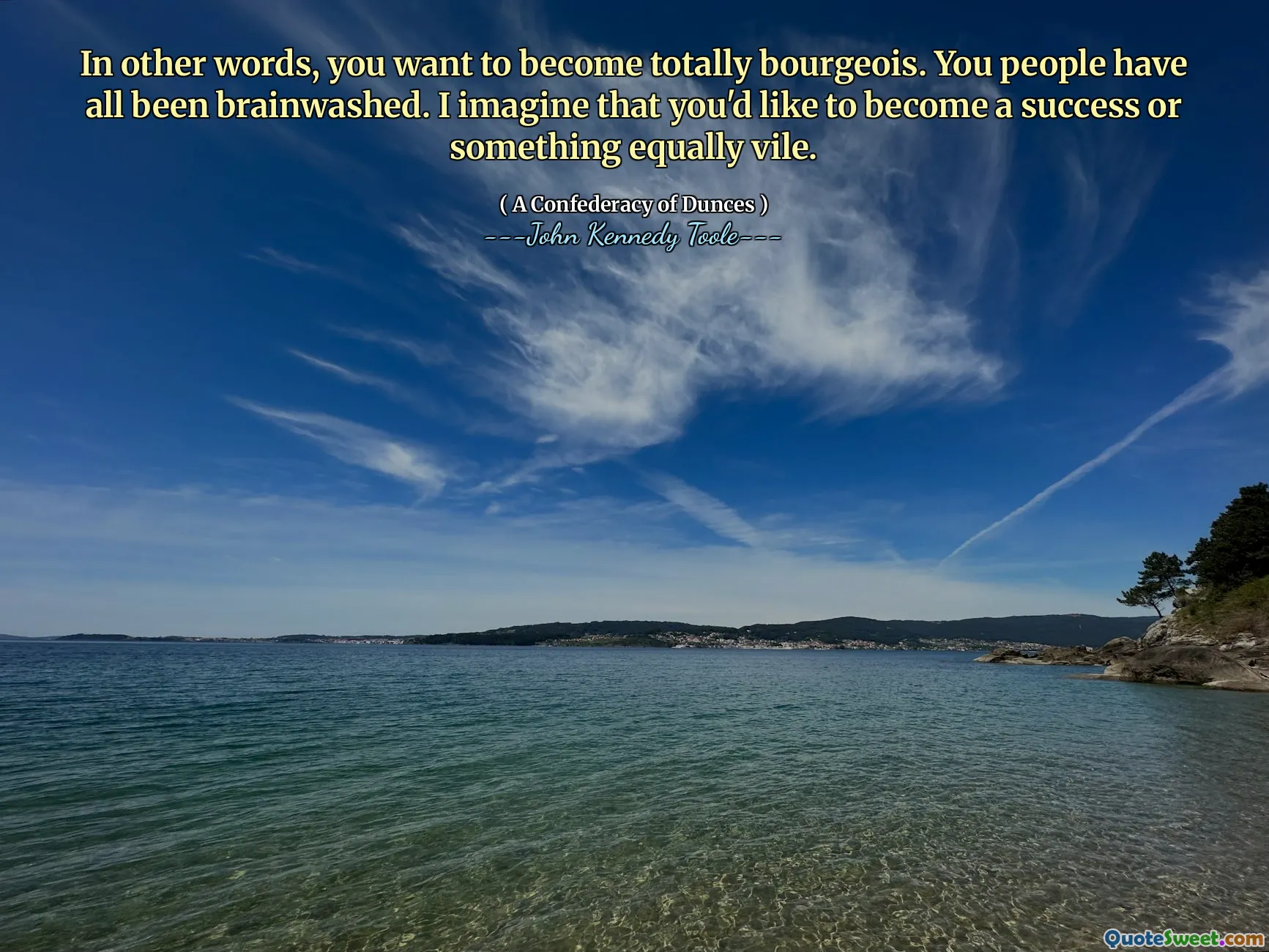
In other words, you want to become totally bourgeois. You people have all been brainwashed. I imagine that you'd like to become a success or something equally vile.
This quote strikes a powerful chord by highlighting the tension between societal values and individual identity. It critiques the conventional aspiration to conform to middle-class norms—what is referred to here as becoming "totally bourgeois." The word "bourgeois" historically connotes the middle-class values of respectability, conformity, and material success. Through this quote, there is an underlying condemnation of the ways in which people might sacrifice their individuality or authenticity in pursuit of what society often labels as "success."
What resonates here is the idea of brainwashing, implying that the desire to attain societal ideals may not be entirely a personal choice but rather a byproduct of pervasive cultural conditioning. This raises thoughtful questions about autonomy and the pressures we face to align ourselves with dominant paradigms—be they professional achievement, material wealth, or social standing.
Furthermore, the juxtaposition of "success" with something "equally vile" adds intensity, suggesting that purely chasing external markers of achievement can be as morally or spiritually corrupting as any other vice. It encourages reflection on what success truly means and whether it should be measured by societal norms or personal fulfillment.
Ultimately, this quote invites us to question the values we inherit and the paths we take in life. Are we genuinely electing these goals, or are we unconsciously adopting roles designed by the collective social psyche? In the broader scope of "A Confederacy of Dunces," this kind of critique fits perfectly within its satirical examination of society and the human condition.







